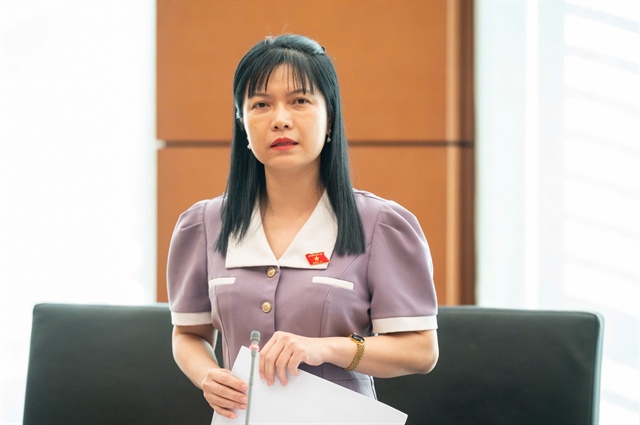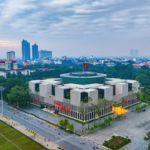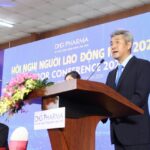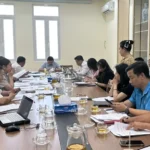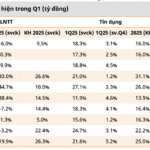During the discussion on the draft Law on Cadres and Civil Servants (amended), many delegates expressed their interest in policies to attract and retain talented individuals to work in state agencies.
Difficult to recruit skilled experts from enterprises for state management
Delegate Ta Thi Yen from Dien Bien, Vice Chairwoman of the National Assembly’s Committee for Deputies’ Affairs, agreed with the mechanism and special policies to attract and retain talented individuals in the public service.
However, she suggested clarifying the policies on talent retention and treatment, as well as financial resources. “There have been cases where talented individuals were successfully attracted, but then they were not assigned suitable tasks or their treatment did not match their contributions and work performance, leading to a lack of sustainability,” the delegate stated.
In addition to identifying priority sectors and fields, it is crucial to consider the budget capabilities of local and unit-level governments.
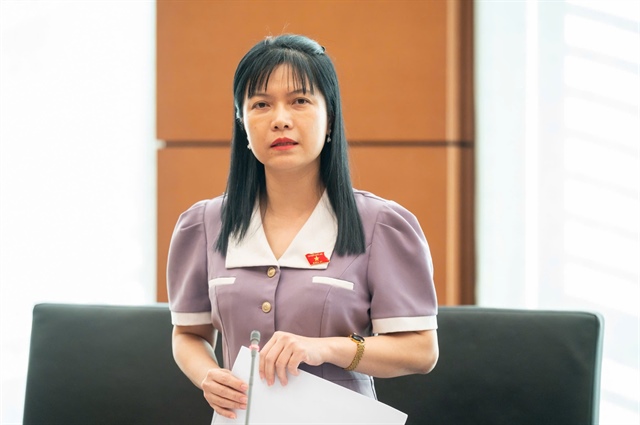 Delegate Ta Thi Yen speaking at the group discussion in the afternoon. |
Regarding civil servant recruitment, the draft law introduces several innovations. Delegate Yen agreed with the direction that “selected candidates must immediately meet the requirements of the position. After passing the selection, the candidate will be appointed and ranked in the corresponding civil servant grade without having to undergo a probationary period.”
Recruiting agencies can be flexible and use both traditional examination and selection methods, as well as direct recruitment for talented individuals with experience from non-public sectors, public service units, and state-owned enterprises.
Additionally, recruiting agencies can sign fixed-term contracts with experts, scientists, and individuals who meet the standards and requirements to perform certain tasks of civil servant positions.
The delegate emphasized that it is unrealistic to attract excellent graduates or young scientists from abroad with an initial salary of 2.34. It is also unreasonable to expect skilled experts from enterprises to undergo lengthy procedures to become managerial civil servants.
|
It is necessary to clarify who is considered a “talented individual.” A talented individual should meet at least one of the following criteria: holding a bachelor’s degree or higher from a top 500 university in the world (according to QS/THE rankings) or from key universities in Vietnam; having at least 5 years of specialized experience in national priority fields and achieving outstanding accomplishments (awards, inventions); or being nominated by an independent agency or reputable international organization. The determination process will be specified by the Government. Delegate Le Hoang Anh from Gia Lai Province |
Sharing similar concerns, Delegate Le Hoang Anh from Gia Lai proposed specific additions to the talent incentive policies.
He suggested that talented individuals should receive a starting salary that is 30% higher than the corresponding civil servant grade, an annual performance bonus of up to 2 months’ salary based on work results, and priority for official housing or a loan of up to VND 500 million with a 0% interest rate to purchase housing.
Regarding the transparency of income and assets of valued individuals to prevent vested interests, the delegate proposed adding a provision on a transparency mechanism. For example, recruited talented individuals should declare their assets annually and be supervised by an independent agency.
Attraction must be accompanied by retention
Meanwhile, Delegate Ha Sy Dong from Quang Tri Province offered a broader definition of talent, including individuals with virtues, a dedication spirit, superior abilities, and significant contributions to the development of their industry, the country, and their locality. On the other hand, a talented individual is someone who excels in a particular field or task.
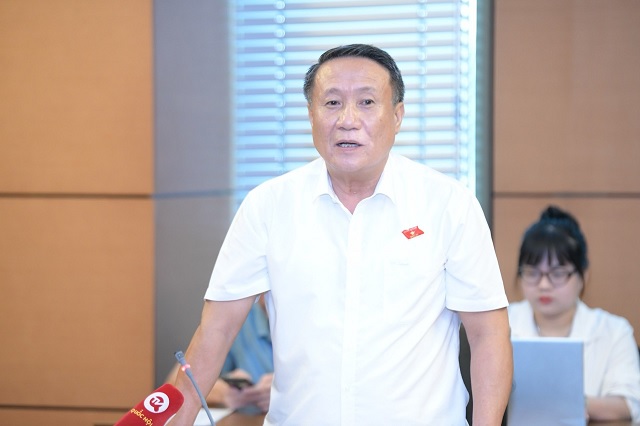
Delegate Ha Sy Dong. Photo: Quang Tri Newspaper
|
He distinguished between talent attraction and talent retention policies, emphasizing that “attraction must be accompanied by retention, and retention will lead to attraction.”
Regarding high-quality human resources, the delegate suggested that if included in a policy for building a cadre and civil servant team, it should be in a separate section, rather than under the content of talent attraction and retention policies.
On the regulation of civil servant recruitment through examinations and selections, Mr. Dong believed that using the term “reception” as a form of recruitment would overlap with “selection.” Essentially, “reception” is a form of “selection,” and they are not different.
The delegate recommended empowering recruitment right at the draft law level, following the principle of “who uses the person recruits the person.”
Regarding the civil servant grades, the draft law proposes six grades that have been in place for many years. The delegate suggested that these grades should be changed to align with the streamlined apparatus, a two-level government, and enhanced decentralization and delegation. He proposed that instead of listing other grades as in the draft, the grades should include: expert, senior, principal, officer, clerk, and employee.
|
Responding to the delegates’ opinions, Minister of Home Affairs Pham Thi Thanh Tra stated that policies to attract and retain talented and knowledgeable individuals and encourage dynamic and creative officials who dare to think, dare to do, and dare to break through for the common interest used to be regulated at the decree level. “Regarding this issue, we try to include some principles in the draft law so that, depending on the conditions of the country and each period, there will be more suitable mechanisms,” said the Minister of Home Affairs. According to Ms. Tra, Decree 179/2024 (Regulations on policies to attract, retain, and treat talented individuals working in agencies, organizations, and units of the Communist Party of Vietnam, the State, the Vietnam Fatherland Front, and socio-political organizations) already provides quite strong policies but still lacks attractiveness. Therefore, this draft law continues to include this content so that the Government will have specific regulations with strong and appropriate mechanisms and policies. |
Tran Thuong – Nguyen Thao – The Vinh
– 17:18 05/07/2025
Streamlining Operations: Ho Chi Minh City Accepts Voluntary Resignations and Retrenchments
“The Chairman of the Ho Chi Minh City People’s Committee has requested that, from now until the completion of the reorganization of the apparatus in line with the Central Government’s orientation, all agencies and units temporarily halt the recruitment of civil servants, including those at the commune level. This also includes a pilot plan to hold competitive exams for leadership positions at the departmental level and equivalent in 2024.”
Unlocking the Secrets of One of Asia’s Best Workplaces for Gen Z
Ajinomoto Vietnam has been recognized at the prestigious HRAA Human Resources Awards in the category of “Asia’s Best Workplace” with the theme “Embarking on a New Era with Gen Z” (The Definitive Z Choice). This accolade underscores the company’s successful people-centric strategies that have captivated the hearts and minds of today’s talented young workforce. Discover the secrets behind Ajinomoto’s ability to resonate with this new generation and explore the innovative HR policies that have positioned them as an employer of choice for Gen Z.



















![[IR AWARDS] June 2025 Disclosure Calendar: Mark Your Dates](https://xe.today/wp-content/uploads/2025/06/HinhT6_01-218x150.png)






